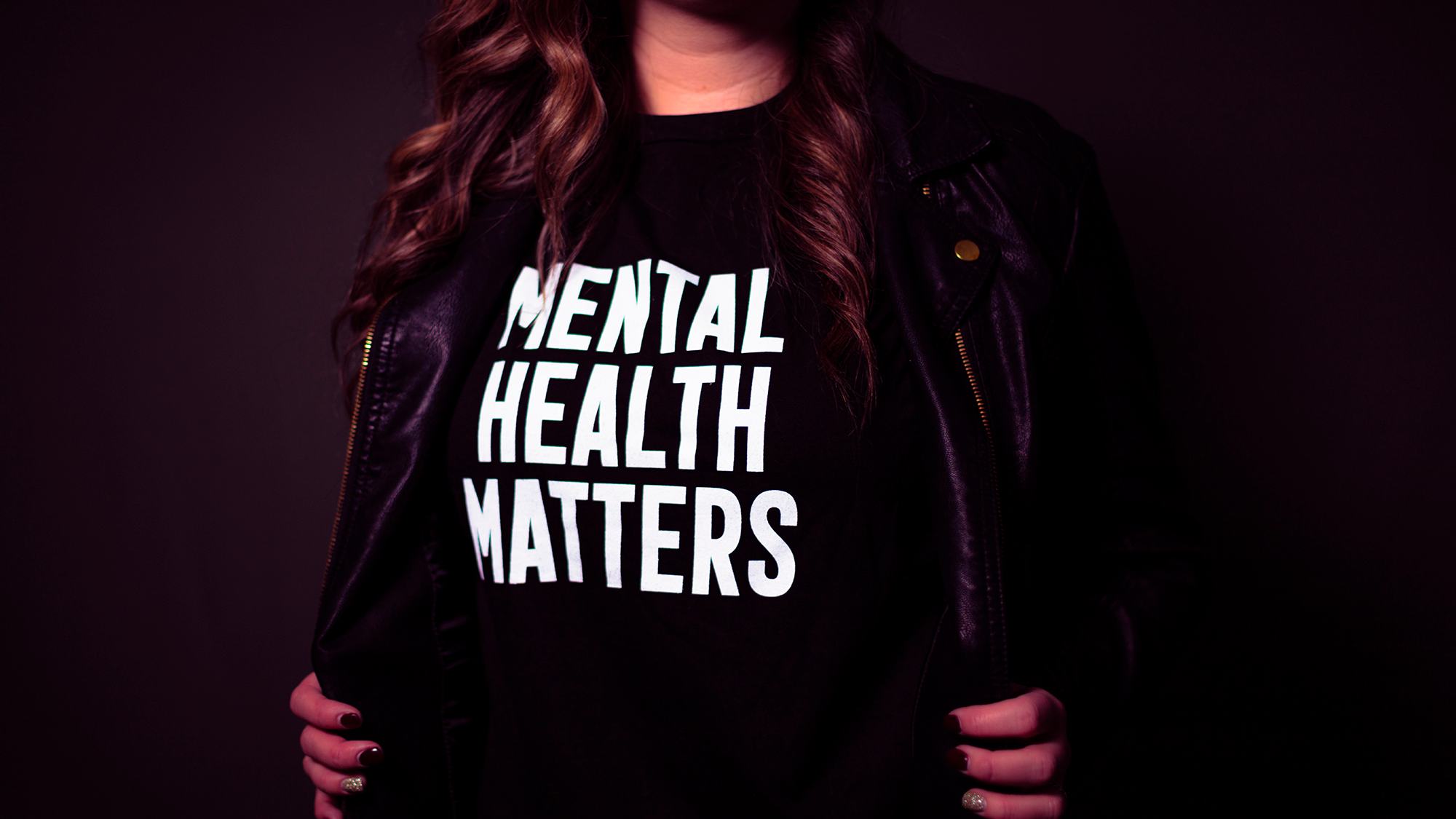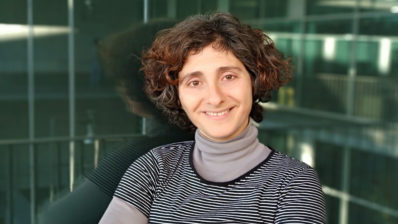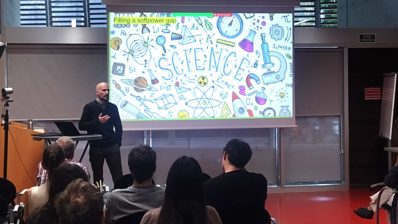The Barcelona Biomedical Research Park (PRBB) and its centres are committed to provide a healthy working environment where researchers can fulfil their full potential while ensuring that this does not take a toll on their mental health.
In order to raise awareness and start a conversation about the topic of mental wellbeing, the PRBB Good Scientific Practice Working group organised a “Mental health and wellbeing in academia” round table last 14th of June, 2022 in the PRBB Auditorium.
The invited speakers were researchers in different positions, working in different areas, and from different centres:
- Hania Kranas, PhD student at Institute for Research in Biomedicine (IRB)
- Amaia Ayala, PhD student at CISAL, Department of Medicine and Life Sciences (MELIS-UPF)
- Michel Owusu postdoc at the Centre for Genomic Regulation (CRG)
- Rosa Fernández, PI at the Institute for Evolutionary Biology (IBE: CSIC-UPF)
Jordi Sunyer, PI at Barcelona Institute for Global Health (ISGlobal), was not able to join the roundtable but will participate in another event that will take place in autumn.
The speakers started by briefly addressing some specific topics on mental health and wellbeing in academia. Amaia Ayala presented a summary of the results of the MELIS PhD students 2021 questionnaire; Michel Owusu talked about individual strategies to cope with the challenging scientific environment, and how to influence the culture of the lab; Rosa Fernández presented different kinds of mentoring – from senior researchers, peers, or even junior researchers -, which is instrumental for resilience and to learn the rules of the scientific environment; and Hania Kranas commented on the need to make changes in the system and institutions, the impact of stress on productivity and mental clarity, and also, the importance of integrating international members of teams, and working together taking into account different points of view.
Afterwards, the speakers took questions from the audience and a lively discussion arose. Then some of the resources available at the PRBB and the centres, such as training from the Intervals courses, were presented. Below you can find summarized some of the points raised and some of these courses, free for all PRBB residents.
Managing expectations
Managing expectations was a key topic for everyone. For PhD students, it is essential to understand what is expected of them from their supervisors. In that sense, it is worth noting Rosa Fernandez lab’s philosophy page, in which she clarifies the expectations – both for students and for the PI – so there are no unwritten rules, and she advocates for open communication on all topics.
But as one advances in their career, expectations (from others or oneself) can still be confusing. Rosa again remarked that being a PI can be very different from what one expects: the idea is often romanticised, but a lot of the time is spent writing grants and in bureaucratic tasks. Also, one has to develop strong interpersonal skills to adapt to everyone in the lab. Indeed, how to plan one’s career taking into account both opportunities and challenges, and dealing with uncertainty are clearly major challenges for researchers. In that sense, there was a call for more training and support for future PIs.
- Navigating the research environment. Tips from an insider
- Self-Leadership for daily challenges in science: A hands-on workshop
- Negotiating with confidence, inside or outside science
- Effective team playing in science – how to get the most out of your team
- Difficult conversations in research: how to make them easier
- Understanding career opportunities that best exploit your skillset
Mobility
Also mentioned were factors that can impact all areas of life, like international mobility. While this is really valuable for researchers, it can also be challenging, and it was especially so during the 2020-21 lockdown. Moving to a new country can lead to loneliness, due to language difficulties, or lack of support network. From their own experience, some of the speakers called for everyone to be part of a good support system, by for instance being mindful of language barriers and making an active effort to include all members in the lab’s social life.
Mentoring
Mentoring and supervision are probably among the factors that most influence a young researcher’s wellbeing, according to several studies. Indeed, the Wellbeing Questionnaire carried out in 2021 on MELIS department’s PhDs showed that 50% of the respondents felt they didn’t have enough support from their supervisors, said Amaya.
The speakers also discussed whether the supervision and mentoring capacity should be included in the evaluation of researchers in the recruitment process and in follow-ups or promotions. Although this might be tricky, some suggested that surveys could incorporate objective measures, like the number of meetings per week. Other ideas came up, like the possibility of including in the application procedure recommendation letters from people previously supervised by the applicant to a PI position.
Rosa offered a good example by sharing a volunteer evaluation she submits herself to periodically, to understand if her lab members are happy and learn how to best manage each of them.
“Lack of support causes a very prolonged uncertainty in a competitive environment that only exacerbates the distress caused by uncertainty. Quality communication and feedback can really make a difference in the level of well-being and satisfaction of a PhD, and hence, in the progress of their project”
Amaia Ayala (UPF)
- Search inside yourself (SIY) – emotional intelligence and leadership for scientists
- Leading for success in science (co-funded by the Intervals programme with BIST and CRG)
Working conditions
Do long working hours really increase productivity or is there a culture of presenteeism? Rosa commented that long hours result in higher productivity only on mechanical tasks. In the case of science, which has a very important creative aspect, one has to be motivated and not too tired, as this could induce errors. Hania agreed, mentioning studies on the ratio of stress and performance, and also on gender inequality, as women still tend to do more work at home.
- Dance your science – kinaesthetics for cognitive agility
- Rhyme your research: using poetry to communicate your science
Power imbalance
The power relationships in the pyramidal research system are clearly very unbalanced, making it harder for those in weaker positions. In that sense it was mentioned that, although it was good to have evaluation surveys, it was also important to ensure they had consequences. The discussion from several points of view made clear that the issue is a complex one, since there are many evaluations – also for institutions – that put a lot of pressure on everyone.
But as Amaya said, “the power balance in the relationship between a PI and a PhD has a huge weight, and literature is showing how a democratic leadership style decreases the risk of developing a mental disorder”
The higher we are in the hierarchy of academic positions, the more responsibility we have to ensure that our team or institution members are mentally healthy and feel good.
Rosa Fernández (IBE)
The system
Indeed, pressure at all levels is probably at the root of all problems. In particular top-down pressure, and how it can be prevented on both individual and institutional levels, was discussed. There was a consensus that the system is unlikely to change anytime soon; but there is a slow and gradual change in the evaluation of research, institutions and researchers. For instance, we can see a shift in publications, from the old top ones (Nature, Science, etc, which are very expensive to publish in and to read) in favour of open access journals, recommended and lately requested by funders like the European Commission, in which one can publish for a fee, and everyone can read for free.
Personal and group resilience
At the end of the day, we must start with small steps, changing our most local environment. If you are in a lab where you don’t like the environment, you should leave, said Michel, a postdoc with experience in several labs. But this is not always easy. Hence, the importance of helping each other: what can colleagues and bystanders do in difficult situations, in which one should perhaps leave a lab in order to protect their wellbeing, but does not have the opportunity to do so? For instance, there might be pressure to finish the PhD and it can be very difficult to leave halfway, when waiting for “just a few more months” would mean finishing it.
It is up to each of us, then, to ensure everyone’s wellbeing. Like Rosa, who as a PI said “We have to join forces with students and postdocs to help them find a balance and develop resilience’.
But as Hania Kranas reminds us: “While it is very important to build the personal resilience of researchers, we can’t forget that this has to come together with providing them with resources for that – workshops or even better, institute-funded therapy sessions”. Also,”no matter how resilient a person might be, if put in a too-demanding environment they still face risks on their mental health that can result in developing depression or anxiety”, added the PhD student.
Moving the focus from personal resilience, to systematic actions to reduce the demands is absolutely necessary in order to improve the wellbeing and productivity in academia.
Hania Kranas (IRB)
- Navigating turbulent times: time management and resilience in science
- Peer mentoring in biomedicine
- Stress management for science professionals
- Mindfulness – a taster for biomedical professionals
Concluding remarks
So, how can we promote a healthy work environment? We are already taking initiatives for prevention. But, personally, I would like to see change at the top, and I am talking about scientific policy. The system puts pressure on everyone: institutions, PIs, pre- and postdocs… So the first thing is blatantly obvious: we need more funding. But we also need to promote the professionalisation of scientists, for instance, by consolidating and supporting more stable positions like senior scientists, who have a massive impact on the quality of the science produced but can also have a key role in a healthy lab culture.
In discussions like this, sometimes it feels like it is PhD students against PIs but we are all on the same boat, all of us, also postdocs, technicians, project managers. In fact, how can project and research managers help? We can bring understanding among collectives and do our bit to improve the system, by for instance reducing bureaucracy while maintaining excellence.
We have a long way ahead of us, but I believe that we will make progress by having meaningful conversations and collaborating, and that we will drive organisational change for a better research environment.
Stay tuned for further events in autumn and do not hesitate to contact the GSP group if you have any suggestions!







